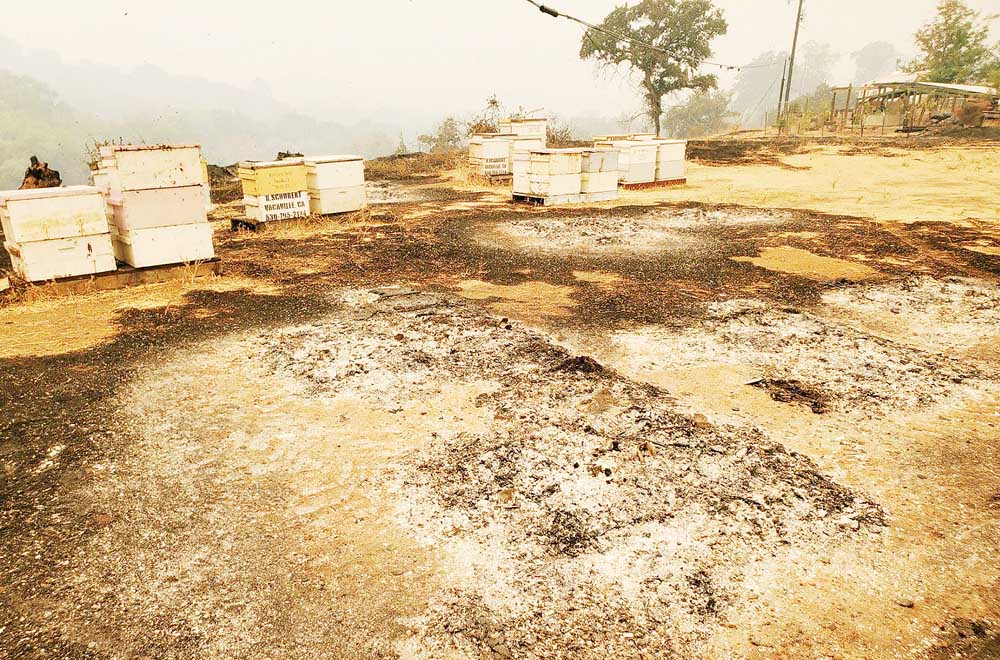Beekeepers lose thousands of hives to California fires
Published 6:00 pm Thursday, September 3, 2020

- Yelle’s bee hives after the fire.
VACAVILLE, Calif. — As a wildfire headed toward their honeybee hives in Northern California on Aug. 19, Caroline Yelle and Rick Shubert, co-owners of Pope Canyon Queens, tried to save them, but it was too late.
“The fires were so intense and quick, we couldn’t get any of the bees out,” said Yelle. “We had 20 minutes to evacuate. At one point, we were driving through walls of flame and smoke too dense to see through.”
The fire’s rapid approach at 1 a.m., she said, had taken them by surprise. Yelle lost 550 of her 750 hives.
Beekeepers across the region say the LNU Lightning Complex Fire that struck in August caused severe losses. The fires incinerated thousands of hives, destroyed bee habitats and forage and may threaten local beekeepers’ ability to provide pollination services.
The region the fire struck, said Rich Bedoya, bee broker and owner of SustainaBee, is heavily populated with beekeepers — some 45 small to midsized outfits and five or six big ones — because it’s close to almond orchard country.
“It’s a big hit,” said Yelle, who estimated she lost more than $100,000 in bees and another $100,000 in benefits from the hives.
Another beekeeper, Clay Ford of Clay’s Bees, said he lost 80% to 90% of his hives.
The night of the fires, Ford said, he was asleep at home. When he went to bed, the wildfires were in Napa County, hours away.
“When I woke up — just ashes. I didn’t expect the fire to spread so far,” he said.
This week, Ford is building new pallets and boxes.
“My bees will fly again,” he said.
Some beekeepers experienced fewer losses. Jonathan Hofland, beekeeper at Noble Apiaries in Dixon, California, said he lost only a dozen hives because his company keeps its own firefighting equipment.
Aug. 19, Hofland said, his team put out the fires themselves. The state and local fire departments, he said, were overwhelmed with other priorities and “don’t tend to value the bees.”
John Foster, beekeeper at Busy Bee Pollination in Esparto, California, agreed local fire agencies have been stretched thin.
“When the fire was burning one of our buildings, there wasn’t a Cal Fire (truck) in sight,” he said.
Foster said he and his son had prepared for the fire by disking around their hives in advance with a tractor to remove brush and tall grass.
Foster runs 38,000 hives, some of which he lost in flames this August, but he said trimming the forage around the hives significantly reduced his losses.
“It’s still devastating,” he said. “I’ve been here 45 years and we’ve never had fires like this, not even these past three years. We’re just doing the best we can.”
Most beekeepers who talked to the Capital Press, including Foster, said they don’t have hive insurance because it’s too expensive.
Bedoya, the bee broker, said losses likely won’t have a substantial national impact on availability of bees for pollination next spring, but local farmers may feel the impact. The longer-term impacts, said Bedoya, the bee broker, are weakened bees and lost habitats.






